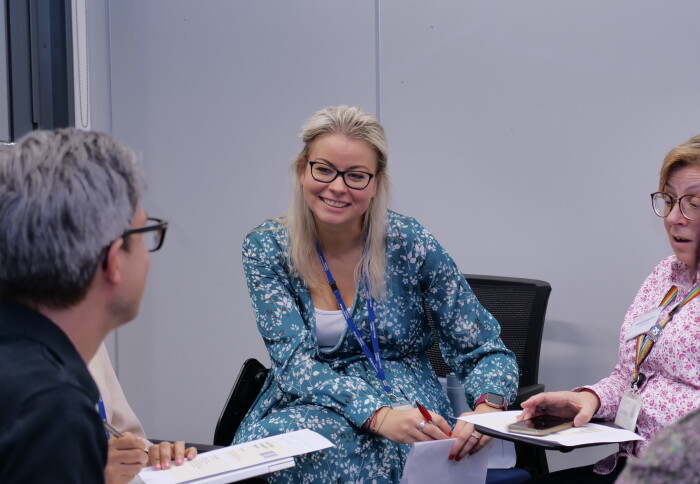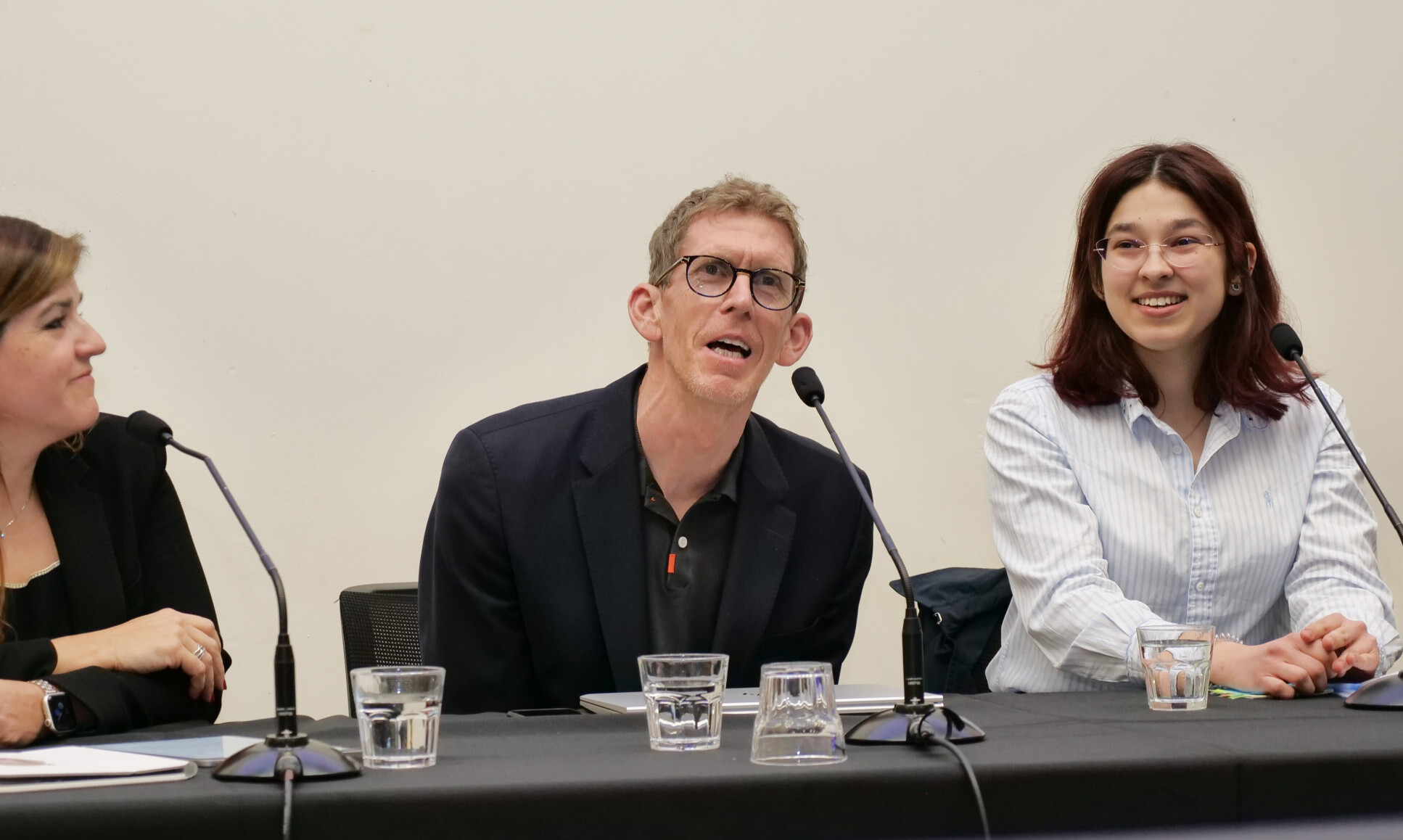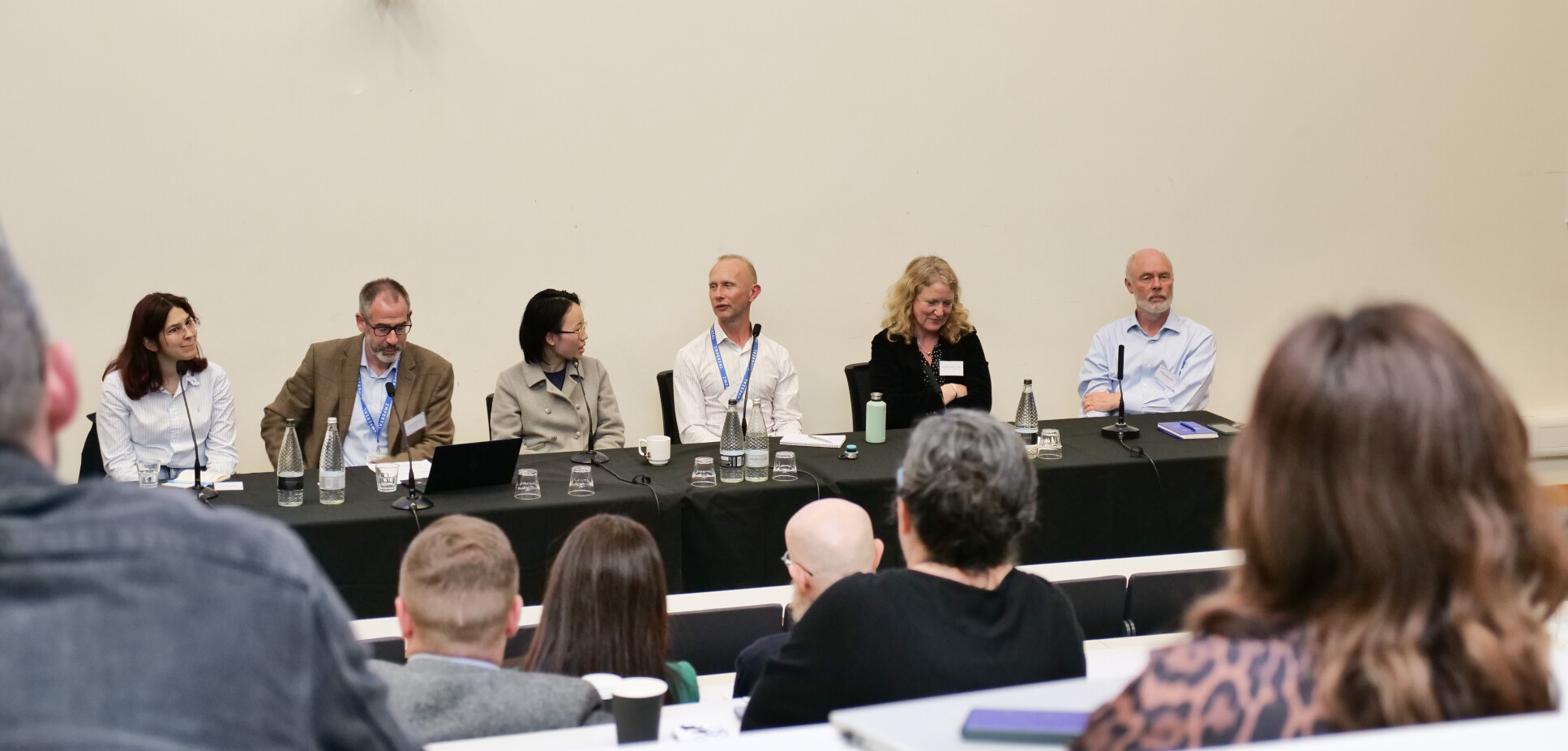Imperial teaching experts share breakthroughs impacting student experience

Imperial has hosted its third collaborative and celebratory festival dedicated to education innovation and achievement.
The three-day event at the South Kensington Campus brought together keynote speakers and panellists from Imperial, as well as external speakers from Technical University of Munich, the University of Nottingham, and the University of Kent.
There were three themes over the three days: teaching well, learning well, and assessing well. The festival also included a poster exhibition showcasing recent education innovations.
Science for Humanity
The Festival began with an introduction from Professor Hugh Brady, President of Imperial College London.
Professor Brady said: "What I find most compelling about Imperial is the collective ambition of our community to make the world a better place – to harness new knowledge and technologies to make our world healthier, smarter, safer, more sustainable and more prosperous.
"We are going from strength to strength - Gold in the UK’s Teaching Excellence Framework; 1st for research quality, environment and impact in the UK’s most recent Research Excellence Framework; and Top 10 in both the QS and Times Higher Global University Rankings in 2024, to name but a few accolades.
"We have a lot to be proud of and that is all because our staff and students who make Imperial special."
 Professor Brady also highlighted the three initiatives that form part of Imperial's new Strategy – Science for Humanity – that complement and build on our learning and teaching activity.
Professor Brady also highlighted the three initiatives that form part of Imperial's new Strategy – Science for Humanity – that complement and build on our learning and teaching activity.
Firstly, 'Imperial Inspires', which strives to position the university as a world leader in attracting young minds to STEMB and supporting them on their STEMB journey through life. This will involve a major uplift in the UK and international Scholarship offer so that the Imperial student experience is open to top talent wherever it resides.
Secondly, the 'Imperial Class of 2030' will be the most talented, the most enterprising and the most diverse Imperial has ever had the privilege to serve. The programme will see an unprecedented investment in the curriculum, student support services, digital resources and physical infrastructure, including a major upgrade to the Sherfield Building as a Student Hub and rollout of the next phase of the White City Deep Tech Campus.
Finally, 'Imperial Empowers' will help to future-proof careers, businesses and communities by providing the advanced skills training and values-driven leadership needed to thrive in a tech-enabled world. The new Imperial Extended Learning Institute is a particular highlight of this project, which will provide high-end short courses targeted at senior managers, executives and future leaders.
Teaching well

The event opened with a Keynote panel focusing on ‘Teaching Well: Student, EDI, and Intercultural perspectives’. The panel which seated Dr Wayne Mitchell, Associate Provost EDI; Dr Monika Pazio Rossiter, Senior Teaching Fellow; Milan Paczai and Eliott Stoclet, Imperial Alumni explored what it means to teach well from various perspectives highlighting the importance of integrating inclusivity and cultural diversity into sustainable, healthy teaching practices.
Another highlight from the first day of the Festival was the opportunity to hear from Jamina Ward of the Business School's IDEA Lab, regarding innovation in online business education. This presentation aimed to illustrate how working collaboratively with faculty and students, alongside industry contributions, can lead to the delivery of high quality online modules and programmes.
Through a collaboration with Nanyang Technical University – funded by Imperial's International Education Seed Fund – the team showcased how learning design and technology training and guidance are provided to empower students to reach their full learning potential. The session also demonstrated how emerging technologies such as artificial intelligence, virtual reality, and augmented reality have a key role to play in business education, with a focus on partnerships with industry experts for creating immersive learning environments.
Learning well
On the second day of the event, the Festival welcomed the Technical University of Munich in their first international collaborative event. The keynote session delivered by Professor Dr Claudia Peus, Founding Director of the TUM Institute for LifeLong Learning, Senior Vice President for Talent Management and Diversity at the Technical University of Munich focused on ‘Universities as partners for lifelong learning’.
Professor Peus said: "In a world of rapid technological transformation, shifting geopolitical dynamics, and evolving societal structures, the need for continuous learning and skill development has never been more crucial. TUM's Institute was established in 2019 to navigate these profound changes."
Later in the day, Dr Gautham Benoy of the Primary Care and Public Health team at Imperial's Faculty of Medicine, showcased 360° immersive videos that they claim can help enhance medical students’ readiness for primary care placements.
Medical students report feeling underprepared for early primary care clinical placements. This project explored using immersive (360°) videos to introduce clinical placements. These videos may support preparation through increasing familiarity with premises and staff roles. They can also elicit emotional responses to consultations through increasing empathy and motivation for learning.
Dr Benoy said: "We are developing immersive videos using a 360° camera with input from students and people with lived experience of health conditions. The first video explores clinical environments through a guided GP practice tour and staff interviews."
These videos were shown in conventional (2D) format to first-year students as part of the curriculum. Students were then invited, on a voluntary basis, to view the immersive format using a virtual reality headset. Immersive videos of simulated consultations involving diverse clinical scenarios are in production. Students experience the videos from the patients’ perspectives; which is anticipated will inspire and help them to prepare for consultations with diverse patients.
Assessing well

On the final day of the Festival, the attendees warmly welcomed by keynote speaker Dr Edd Pitt, Programme Director for the Post Graduate Certificate in Higher Education and Reader in Higher Education and Academic Practice in the Centre for the Study of Higher Education at the University of Kent.
The keynote titled ‘Designing Effective Assessment and Feedback into the Curriculum’ discussed discuss authenticity in assessment and how programmes can create successively more complex assessments addressing specific learning objectives or competencies in different assessments as students’ progress. Dr Pitt also discussed how feedback can be one of the most powerful ways of enhancing students’ learning if students are prepared to seek out or use all available sources of feedback to improve their subsequent work.
Attendees also heard from Henry Lovett, Policy Advisor, Royal Society of Chemistry about the skills needed for the future workforce in the chemistry sector.
Mr Lovett said: "Societal and scientific progress are driving change in the chemical sciences sector and the skills and knowledge required of its workers. The Royal Society of Chemistry is researching the impacts of this change on the chemical sciences workforce now and over the coming years to find the key skills that will underpin a successful career.
"We’re exploring how people will learn these skills, either before they join the workforce or through training and professional development. Employability may become an increasing focus for both undergraduate and postgraduate training in chemistry and the wider sciences."
Later in the day, attendees joined a workshop hosted by Dr Monika Rossiter, Coco Nijhoff, and Dr Tiffany Chiu, allowing them to explore the critical and ethical use of Generative AI in the classroom.
The team also showcased examples of how students can be supported in developing AI literacy competencies and skills, drawing on examples from the university as well as participants’ own practices. Participants were also given advice to help them contribute to an emerging definition of AI literacy and associated skills which can be used and adapted across the university in future.
The event concluded looking ‘Towards Sustainable Success’ in a panel discussion chaired by Professor Peter Haynes, Vice Provost (Education and Student Experience). In this session, the Student Union Deputy Presidents for Education and Welfare, the three Vice-Deans (Education), the Associate Provost (Learning and Teaching), and Dr Kay Leedham-Green from Faculty of Medicine discussed their visions of sustainable success, linking these with the strategic direction unveiled in the President’s recent strategy and identity launch.
Article text (excluding photos or graphics) © Imperial College London.
Photos and graphics subject to third party copyright used with permission or © Imperial College London.
Reporter
Murray MacKay
Communications Division